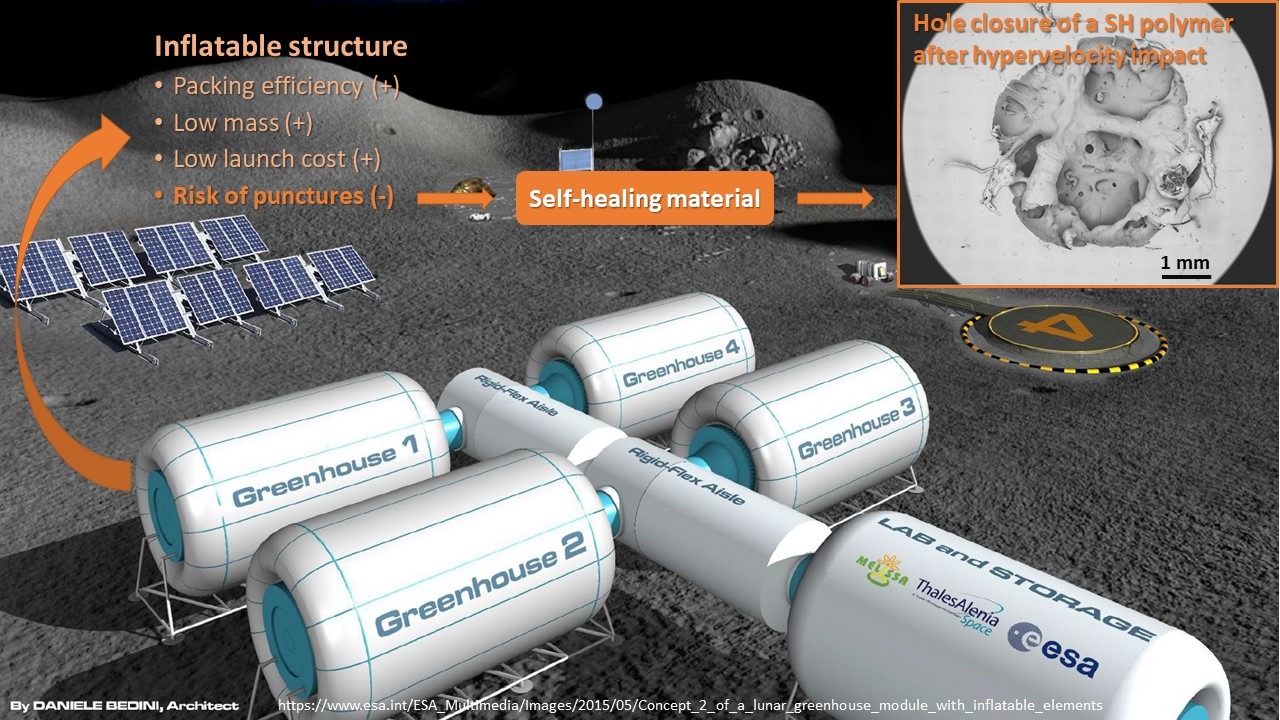Inflatable structures such as habitats, airlocks and ballutes will gain more importance in future space explorations. Their main advantages are high packing efficiency, low mass and launch costs and expandable volumes. While operating in space their integrity will be threatened by several hazards. In particular, micrometeoroids and orbital debris and accidental contact with sharp objects can generate punctures and cuts causing gas leakage and depressurization. Since currently no space systems can autonomously repair, events of this type will have catastrophic effects. Recently, self-healing (SH) materials have become interesting for the space industry since they can lead to systems and structures able to self-repair after accidental damages. Both extrinsic and intrinsic SH systems have been demonstrated to be efficient for ground application. The state-of-the-art related to space is restricted to few studies by space agencies (NASA, ESA). Even though the studied systems show promising results, the understanding of their behaviour within the space environment is limited. We propose to study and optimize intrinsic SH polymers for space, as ionomers, supramolecular polymers and vitrimers, by tailoring amount and kind of reversible bonds and polymer architecture, therefore tuning their repair ability via temporary local increase in chains mobility, triggered by a damage event or with external stimuli (e.g. temperature, UV). Outgassing, radiation, aging and cryogenic temperature effects on the SH process will be assessed combining phenomenologically different experiments able to characterize the healing response in space. The relevant information about the SH mechanisms will be used to develop mass and volume efficient flexible multilayer systems for inflatable structures including self-healing functionality. This will result in higher protection and safety for astronauts and longer missions in the perspective of Moon bases establishment and manned exploration of Mars.

